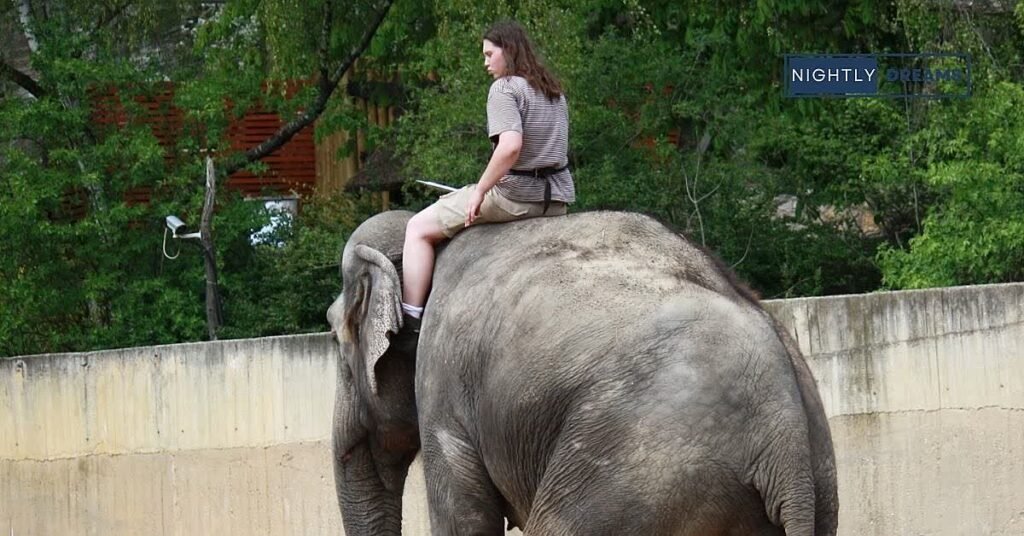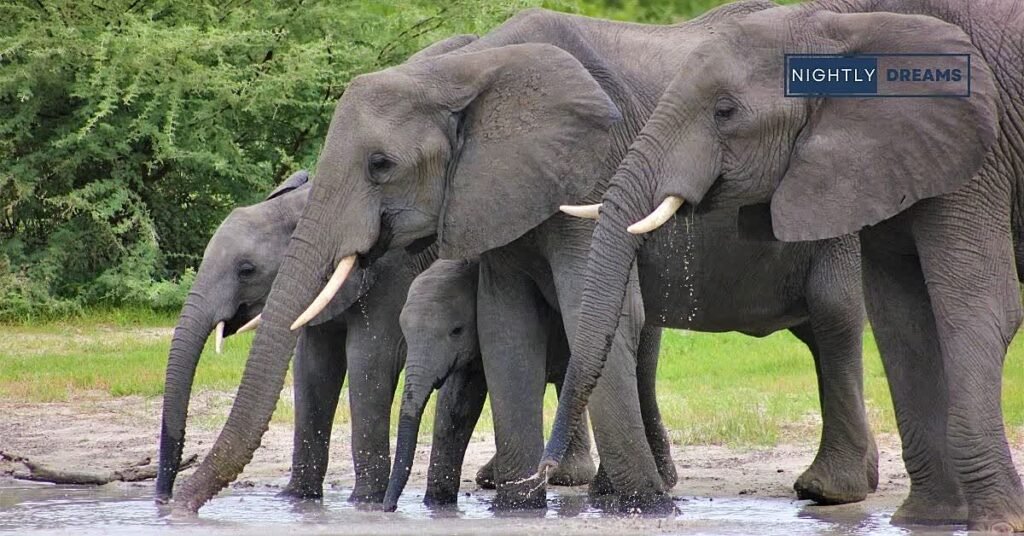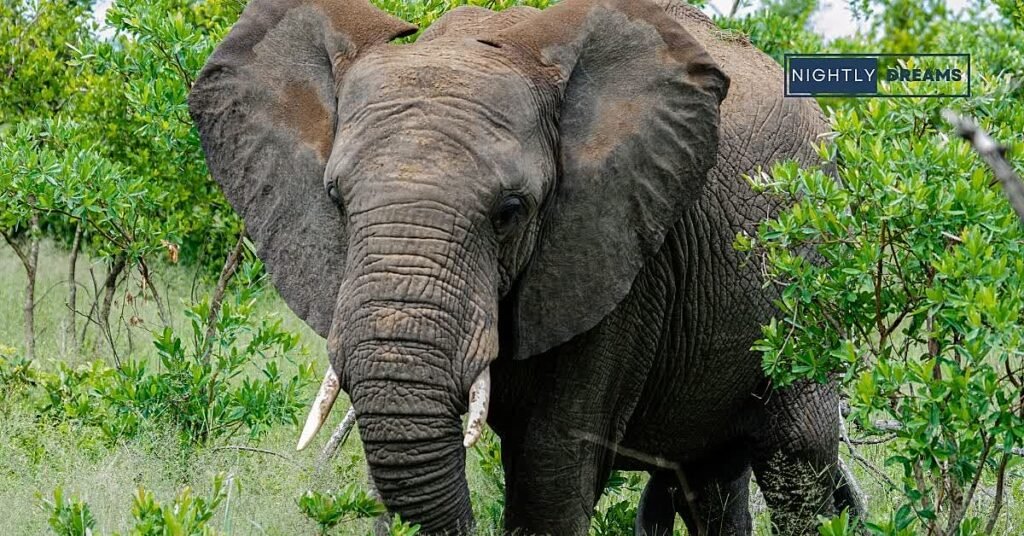Have you ever wondered what it means to dream about elephants? These majestic creatures often symbolize strength, wisdom, and memory, but their presence in your dreams might hold deeper personal significance. Curious about what your subconscious is trying to tell you? Keep reading to uncover the fascinating meanings behind elephant dreams.
Understanding Elephant Dreams
Dreams featuring elephants often hint at emotional strength and wisdom. Elephants symbolize qualities like leadership, patience, or long-standing memories. Through these symbols, they can reflect important aspects of your waking life.
You may see an elephant in your dream during moments of self-reflection. These dreams often align with your internal need to address challenges. Emotional resilience and the ability to adapt may resonate from such experiences.

Each detail in an elephant dream may shift its meaning. For example, a calm elephant could represent stability, while one in distress might signal emotional turbulence. Paying attention to actions, surroundings, and even the elephant’s size is vital.
Some interpret these dreams as encouragement to revisit forgotten lessons. Growth often stems from remembering past wisdom. If you interact with the elephant, it might suggest a relationship or goal requiring focus.
The Science Behind Dreaming In Animals
Animals, including elephants, experience sleep stages that contribute to dreaming. Understanding how dreaming occurs in animals provides insight into their cognitive and emotional processes.
Studies On Animal Sleep Patterns
Research identifies that animals enter various stages of sleep, such as REM (rapid eye movement) and NREM (non-rapid eye movement). In REM sleep, brain activity closely mirrors wakefulness, often associated with dreams. Mammals like dogs, elephants, and primates exhibit such patterns, reflecting shared evolutionary traits. Studies from institutions like MIT confirm that REM sleep supports memory consolidation and emotional regulation in many species.
Smaller animals, such as rodents, frequently cycle through shorter REM periods, while larger mammals, like elephants, have more prolonged cycles. Tracking electrodes and behavioral observations have validated these stages. Elephants exhibit unique REM sleep patterns due to their size and daily activity levels, limiting these phases to brief episodes.

What Makes Elephants Unique In Their Dreaming?
Elephants display distinct sleep behaviors tied to survival needs. Their sleep generally occurs lying down, as standing sleep rarely allows REM needed for dreaming. On average, elephants sleep 2-3 hours daily, far below most mammals, maintaining alertness for potential predators.
Cognitive attributes also differentiate elephants. Known for problem-solving skills and emotional complexity, elephants’ dreaming may reflect these traits. Studies suggest their dreams could process social relationships, herd dynamics, or past experiences due to their renowned memory. Researchers using neuroimaging and hormone analysis indicate a connection between their dreams and emotional regulation tied to herd interactions.
Common Themes In Elephant Dreams
Dreams featuring elephants often manifest recurring patterns that connect to emotions, memories, and relationships. These themes frequently parallel the characteristics of elephants in the natural industry, enriching the interpretation of such dreams.
Emotional Experiences And Memories
Strong emotions often accompany elephant dreams, reflecting their symbolic ties to memory. You might notice feelings of nostalgia, grief, or unresolved emotions tied to past events. These dreams may resurface forgotten experiences or lessons waiting to be revisited.
Encounters with elephants in calm scenarios can indicate emotional stability. Conversely, a distressed or agitated elephant within a dream could reveal internal conflicts or suppressed feelings. These elements invite introspection into your current emotional state.

Social Interactions And Herd Dynamics
Elephant dreams frequently mirror their complex social behaviors. A dream showing elephants interacting might highlight your relationships or need for stronger social bonds. For example, witnessing nurturing behavior within a herd could draw attention to familial roles or supportive connections.
If an elephant appears isolated, this could symbolize feelings of loneliness or detachment. Observing protective or leadership traits in a dream may correspond to your responsibilities or dynamics in social groups. These scenarios often encourage reflection on how you’re handling communal aspects of life.
Cultural Interpretations Of Elephant Dreams
Elephant dreams hold unique interpretations across cultures and traditions. Their significance often reflects values such as strength, wisdom, and social harmony, deeply entrenched in various societies.
Symbolism In Different Cultures
In many Eastern cultures, elephants symbolize divine wisdom and protection. For instance, in Indian traditions, dreaming of elephants often represents prosperity and success, as they’re associated with Lord Ganesha, the remover of obstacles. Similarly, in Buddhist contexts, elephants signify inner peace and spiritual enlightenment.
African cultures frequently link elephant dreams to leadership and community. The elephant’s role as a protector and provider in nature parallels its dream symbolism, often signifying strength in familial or social responsibilities. In contrast, Western cultures might interpret elephant dreams as reminders of buried memories, inspired by the adage “elephants never forget.”
Each cultural lens offers insights that can shape how you interpret your elephant dreams. Contextualizing these symbols within your personal experiences enriches their meaning.

Myths And Legends Surrounding Elephant Dreams
Legends and myths often embed deeper meanings into these dreams. In Hindu mythology, elephants appear in cosmic tales, such as the eight elephants supporting the industry’s directions, symbolizing stability and universal balance. Dreaming of these celestial beings might signal the need for equilibrium in your life.
In African folklore, elephants are revered as royal animals tied to wisdom and ancestral guidance. Dreams involving elephants in such stories might point to spiritual messages or ancestral blessings. Burmese legends recount white elephants as harbingers of extraordinary luck, and seeing one in a dream may suggest forthcoming divine intervention or fortune.
These stories enhance the layers of interpreting elephant dreams, blending spirituality and cultural narratives into personal meaning. Understanding the myths provides broader perspectives on what elephants in dreams might signify to you.
Why Elephant Dreams Matter
Dreams featuring elephants connect human consciousness with these animals’ extraordinary qualities, revealing layers of insight and meaning. They offer windows into understanding the cognitive abilities of elephants and highlight their importance in the natural industry.
Insights Into Elephant Cognition
Elephants demonstrate advanced cognitive functions that parallel their symbolic presence in dreams. Their ability to form complex social bonds, solve problems, and exhibit self-awareness reflects high intelligence. Research shows elephants recognize themselves in mirrors, a rare trait shared with humans, apes, and dolphins. Their strong memory capabilities extend to their navigation skills, as they recall water sources and migration routes over decades. Dreams involving elephants could mirror your focus on intelligence, resilience, or collective experiences in your relationships.
Their emotional depth also plays a role in interpreting these dreams. Elephants display grief, joy, and empathy, particularly within family herds. If an elephant appears calm in your dream, it might symbolize harmony in relationships. On the other hand, distressed elephants could point to unresolved emotional struggles. Such striking connections suggest that dreams act as metaphors, bridging human emotions with animal behaviors.

Implications For Conservation Efforts
Elephant dreams could also highlight the urgency of protecting these majestic animals. Studies estimate that around 415,000 African elephants remain in the wild, with their numbers declining due to poaching and habitat loss. When elephants appear in your subconscious, it may reflect a call to address broader environmental concerns. Their plight connects deeply to the ecosystems they shape, as elephants play a keystone role in maintaining biodiversity.
Efforts to save elephants can benefit from dream symbolism, sparking personal motivation or advocacy. Individuals inspired by these dreams might participate in conservation projects or donate to organizations like the Industry Wildlife Fund and Save the Elephants. These actions can create ripple effects in protecting ecosystems and sustaining the natural balance that elephants represent.
Dreams of elephants merge personal introspection with global themes, proving their profound relevance in various dimensions of life.
Conclusion
Dreaming about elephants opens a window into your subconscious, blending personal emotions with the profound symbolism these majestic creatures carry. These dreams encourage you to reflect on your inner strength, relationships, and emotional balance while offering insights into forgotten lessons or unresolved feelings.
By exploring the cultural, emotional, and even scientific aspects of elephant dreams, you gain a deeper understanding of their significance in your life. Whether they inspire self-growth or spark a connection to conservation efforts, these dreams hold the potential to guide you toward meaningful change.







